Is it safe to take melatonin every night for sleep? What are the risks and ideal dose?
Did you know that the typical dose you’re taking is way higher than what you’ll likely need? Doctors weigh in on that along with the recommended duration, and other dos and don'ts.
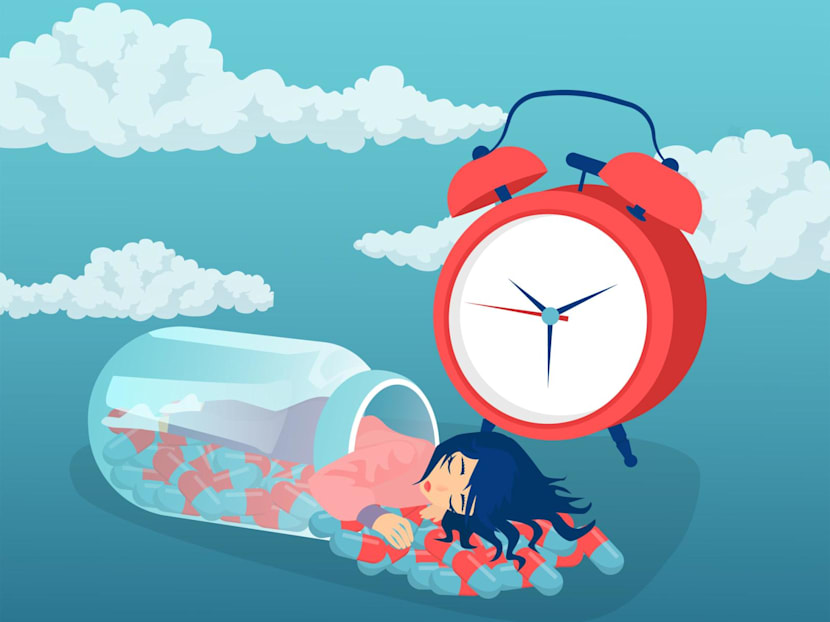
(Art: iStock/Feodora Chiosea)

This audio is generated by an AI tool.
If you have taken a melatonin supplement before or are thinking of trying one, you might be wondering: Can I use it every night? How long can I use it for? And in spite of what you hear about it being non-addictive, are there any risks?
With its promises of helping one fall asleep faster, and improving sleep quality and duration, interest in melatonin supplementation has been on the uptick, according to Pharmaceutical Society of Singapore (PSS). “We estimate that approximately two to three out of every 10 customers inquiring about supplements specifically ask for melatonin,” said a spokesperson. It is an increase from about one or two out of every 10 supplement-seeking individuals in previous years.
Melatonin is a sleep hormone produced by your brain’s pineal gland when it senses darkness – which is why when you scroll through your social media feed before bedtime, the light from your device interferes with your brain’s melatonin production.
The amount of melatonin produced fluctuates throughout the day and peaks at night, said Dr Leonard Eng, a consultant with Singapore General Hospital’s Department of Psychiatry. “It's worth noting that taking 0.1mg to 0.3mg of melatonin can cause our blood melatonin levels to rise five times our usual amount," he said. "Hence, the actual amount of melatonin we produce is likely far less."
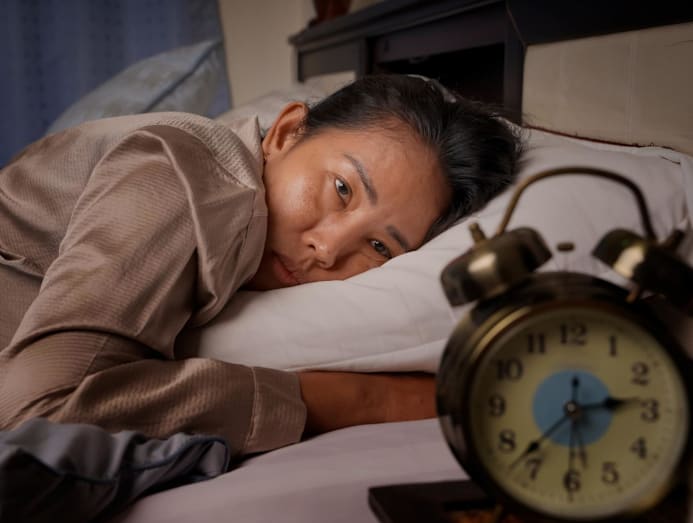
But as you age, you produce less. “Some health conditions such as Alzheimer’s disease and (blood pressure) medications like beta-blockers can also reduce melatonin production,” said Dr Eng.
HOW MUCH MELATONIN DO YOU NEED? WHAT HAPPENS WHEN YOU EXCEED THE AMOUNT?
Melatonin is usually used for its effects on the circadian rhythm or body clock, explained Dr Eng. "We usually use doses of around 0.3mg to 0.5mg and it has been shown to cause shifts in the circadian rhythm", such as bringing forward the body clock in people whose body clock is set to a much later sleep and wake time.
"In general, most commercial products range from 0.5mg to 10mg and thus, exceed natural physiological levels," said Dr Eng.
Indeed, the typical dose for many melatonin supplements starts around 2mg per day, and can go up to as high as 10mg per day, noted PSS. Most supplements recommend doses that fall within the range of 2mg to 5mg per day.
“When high doses are taken, the higher levels may linger in the body for longer,” said Dr Eng. “At higher doses, you may experience more side effects such as drowsiness, headaches or dizziness.” He added: “A potential concern is whether chronic, high-dose melatonin could disrupt the body’s normal hormone feedback loops. While short-term data is reassuring, the evidence is limited for use beyond a few years”.
It’s all the more prudent to heed PSS’ advice to begin with the lowest effective dose – and increase only if necessary.
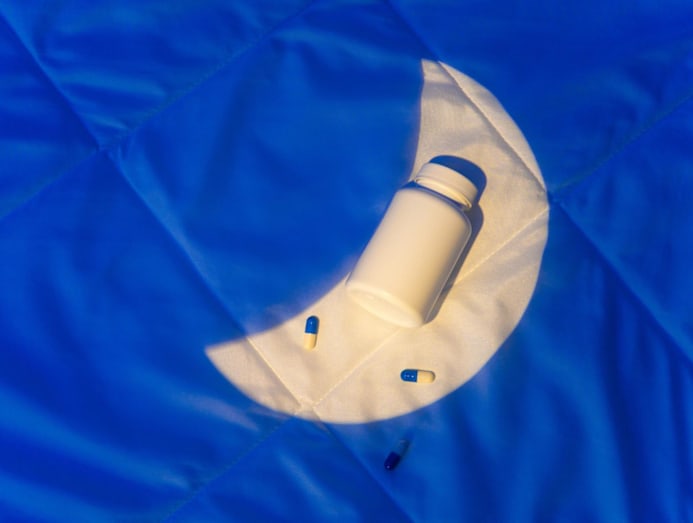
WHY DOES IT NOT WORK IN SOME PEOPLE?
It depends on the underlying cause of the sleep problem, said Dr Eng. “For example, when the underlying cause is sleep apnoea, anxiety or depression, melatonin may be less effective.” Instead, the supplement is more effective for circadian rhythm disorders such as delayed sleep-wake phase disorder.
Melatonin “can bring forward the body clock but it has to be timed differently”, said Dr Eng. He cautioned that for these cases, “taking melatonin at the wrong time relative to your circadian rhythm can shift the circadian rhythm in the undesired direction or have little effect”.
“Because they are supplements,” continued Dr Eng, “the amount of melatonin in the product can vary significantly from what is stated on the label, which can lead to an unreliable response.”
If you’re trying to shift your body clock, consult your doctor on how best to do so.
HOW LONG CAN YOU TAKE MELATONIN FOR?
“It is important to note that melatonin supplements are intended for short-term use, such as for insomnia or jet lag,” said PSS. “Typical side effects of excessive melatonin intake include drowsiness, nausea and headaches. Anyone considering long-term use should consult a healthcare professional for tailored advice.”
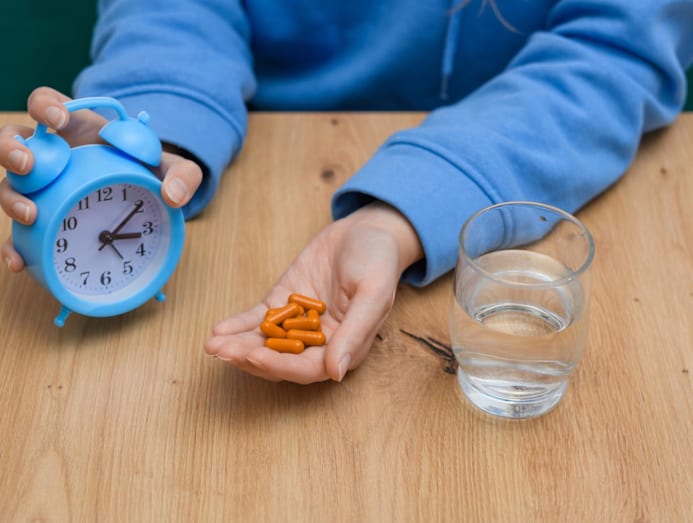
And by “long-term use”, that usually refers to a period longer than three months. “Most drug labels will recommend short-term use, generally up to three months,” said Dr Eng. “The long-term effects are unclear and if long-term treatment is needed, it is best to consult your doctor to weigh the potential risks and benefits.”
As for the concern of becoming “addicted” to melatonin, it “doesn’t appear to cause physical dependence like some other sleeping pills, but psychological reliance may develop”, said Dr Eng. “If you wish to stop, you can taper the dose gradually (such as halving it weekly), while focusing on consistent sleep habits to build confidence in sleep without the supplement.”
ARE THE MELATONIN SUPPLEMENTS BEING SOLD HERE SAFE?
"It is worth noting that most melatonin products in Singapore – and in most of the world – are classified as supplements and regulation is less rigorous than for prescription medications," said Dr Eng. "As such, label claims may not always match actual content, which may also affect the response."
PSS added that melatonin supplements don’t require product registration or approval from the Health Sciences Authority (HSA). But manufacturers and distributors have to follow HSA’s guidelines on the permitted ingredients as well as the claims that can be made on product labels, explained the spokesperson.
“Melatonin supplements are sold over the counter with the exception of Circadin, which is registered as a prescription-only medication,” noted PSS. “Circadin is regulated as a medicinal product by the HSA due to its established clinical effectiveness in improving sleep quality for individuals with primary insomnia.”
CAN YOU USE MELATONIN WITH NATURAL SLEEP AIDS SUCH AS CHAMOMILE TEA AND LAVENDER ESSENTIAL OIL?
“Currently, there is limited scientific research on the effects of combining melatonin with other natural sleep aids, such as chamomile tea or products containing lavender essential oil,” said the spokesperson from PSS.
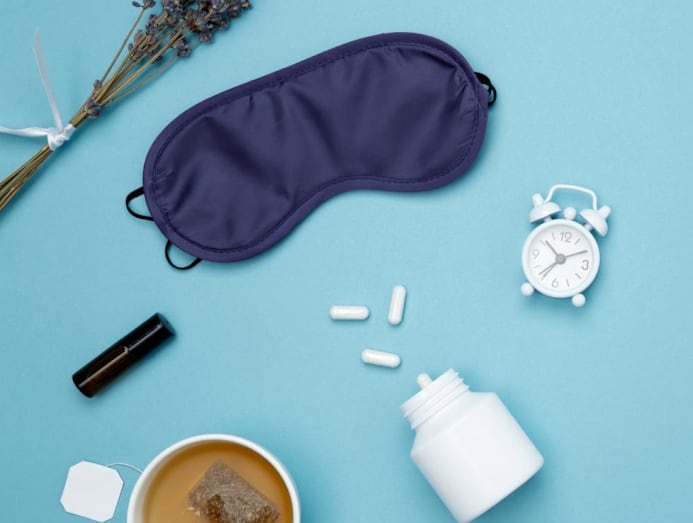
According to him: “While these remedies are generally considered safe when used individually, we advise caution when taking them together with melatonin. The reason is that their sedative effects could potentially lead to increased drowsiness and a greater risk of impaired alertness, mental acuity or coordination.”
If you’re considering supplement combinations, consult a doctor for personalised advice, suggested PSS.
WHAT’S THE BEST WAY TO TAKE MELATONIN SUPPLEMENTS?
Melatonin is best taken after a meal, suggested PSS. “For immediate-release tablets, take them approximately 30 minutes before bedtime. For prolonged-release tablets, one to two hours before bedtime is recommended.” Some formulations such as sublingual (placed under the tongue) or liquid, added Dr Eng, may be absorbed more quickly.
If you're taking a melatonin tablet, capsule or pill, chasing it down with water is best. “We recommend not consuming melatonin with alcohol as the combined sedative effects can lead to pronounced drowsiness and may place additional strain on the liver, especially in individuals with pre-existing liver conditions,” cautioned PSS.
While you’re not likely to drink caffeinated beverages at night, note that you shouldn’t pair melatonin with coffee or tea, said PSS. “Caffeine, as a stimulant, can counteract the intended calming effects of melatonin, potentially reducing its effectiveness.”

Avoid using melatonin, too, if you’ve started on medications such as blood pressure-lowering drugs, oral anti-diabetic agents, medicines for mood disorders or hormone therapies as well as anticoagulants or blood thinners, highlighted PSS. “Melatonin may interact with these medicines, possibly altering their efficacy or increasing the risk of side effects,” said the spokesperson.
If you’re already on long-term medications or managing chronic health conditions, “we strongly encourage consulting a pharmacist or healthcare professional before starting melatonin supplementation”, advised PSS.
GUMMIES, TABLETS, LIQUIDS... HOW DO YOU DECIDE?
Dr Eng suggested considering a sustained-release or prolonged-release formulation that releases melatonin more slowly through the night if you struggle to stay asleep.
But generally, it is usually a matter of personal preference, he said. "Tablets and capsules may have the most consistent delivery of melatonin" while "liquids and sprays may be absorbed quicker". "Gummies may be preferred for being chewable but there may be issues with consistent dosing in the manufacturing process."






